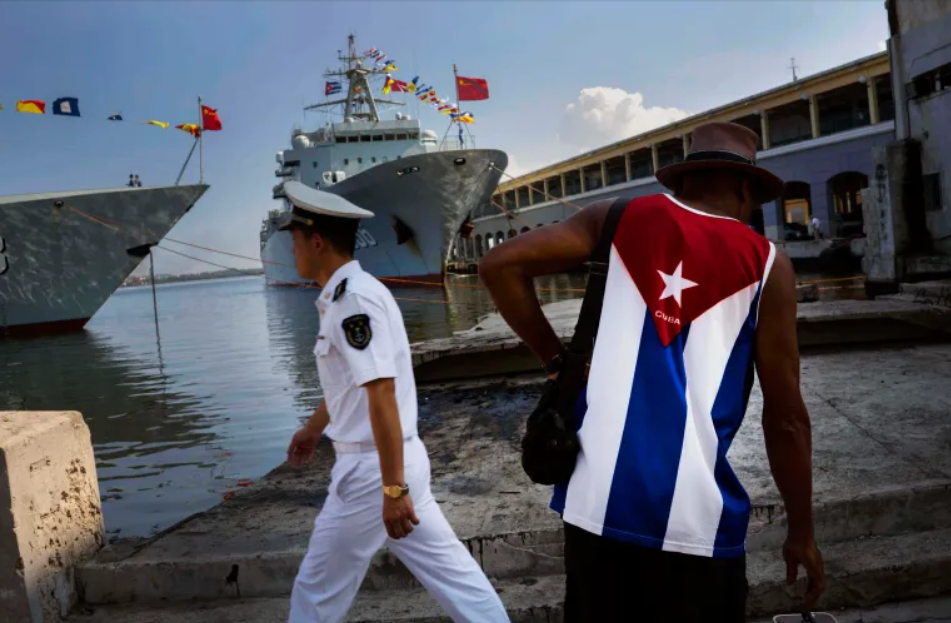(Al Jazeera Media Network) China has been negotiating the creation of a new joint training facility on the Caribbean island nation of Cuba, creating concerns it could lead to the stationing of Chinese troops in the waters off the U.S., according to the Wall Street Journal.
The newspaper on Tuesday reported that discussions between the two countries are in advanced stages, but had not concluded. The report said officials from the administration of President Joe Biden have been trying to discourage their Cuban counterparts from finalizing the deal.
The report came a day after U.S. Secretary of State Antony Blinken completed a two-day visit to Beijing, where he met President Xi Jinping. The meetings came at a time of heightened tensions between the two superpowers.
Both sides hailed modest progress in lowering the temperature during the meeting, and committed to more diplomatic engagements with further high-level U.S. visits in the coming months.
While the White House did not immediately confirm the Wall Street Journal report, Blinken told reporters on Tuesday that during the visit he “made very clear we would have deep concerns about PRC (People’s Republic of China) intelligence or military activities in Cuba.”
“This is something we’re going to be monitoring very, very closely, and we’ve been very clear about that,” he said. “And we will protect our homeland, we will protect our interests.”
Meanwhile, National Security Council spokesman John Kirby told reporters on Tuesday, “It’s no secret or surprise that (China) is trying to improve their influence or reach … it’s not like we aren’t aware of it. It’s not like we haven’t been monitoring it.”
The latest report came days after the Biden administration confirmed that China has maintained surveillance operations in Cuba for years, which were upgraded in 2019.
A U.S. official told the Wall Street Journal that the possible new military facility reported on Monday is part of China’s “Project 141”, an initiative that aims to expand China’s military and logistical support network across the world.
On Tuesday, U.S. officials renewed calls to re-establish military-to-military communication between the U.S. and China, an objective Blinken did not attain on his visit.
Sarah Beran, White House National Security Council senior director for China and Taiwan affairs, told reporters in a briefing that establishing military-to-military communications was essential to reduce friction between the global powers.
“This is an absolutely critical way for us to manage competition, crisis communication, ensure that there is not miscommunication or misperception about each other’s intentions,” Beran said.
“We remain willing and able at all levels to meet and call on China to respond appropriately to that,” Beran said.
Chinese officials have cited U.S. sanctions as an obstacle to military dialogue.
Officials have repeatedly warned that a lack of military communication could lead to unintentional escalation, pointing to a recent close call between U.S. and Chinese aircraft over the South China Sea and a close encounter involving U.S. and Chinese naval vessels in the Taiwan Strait.


